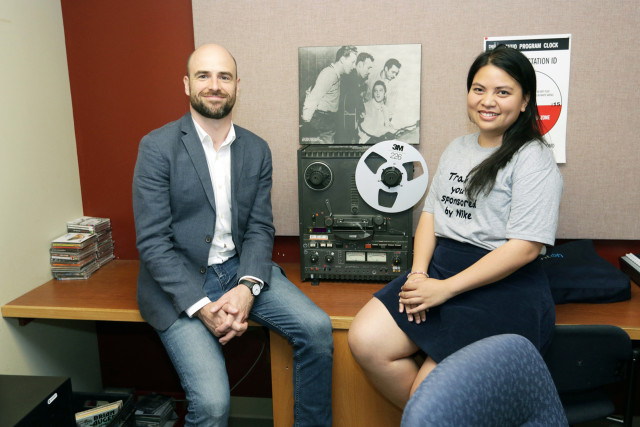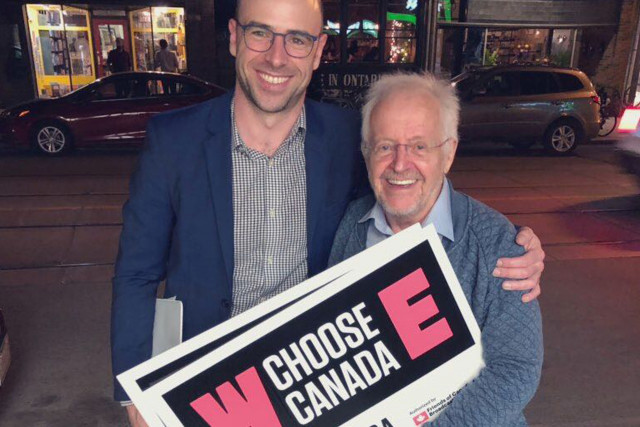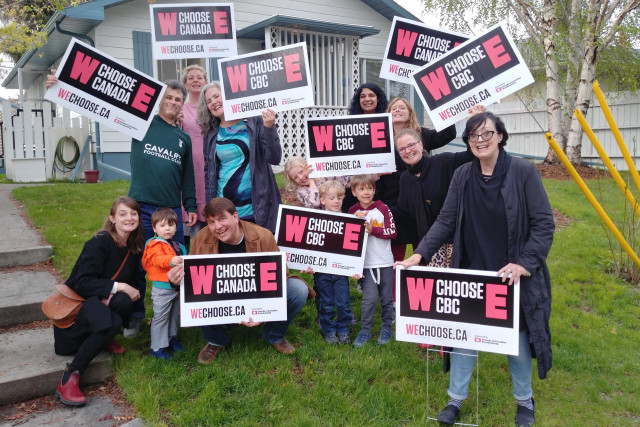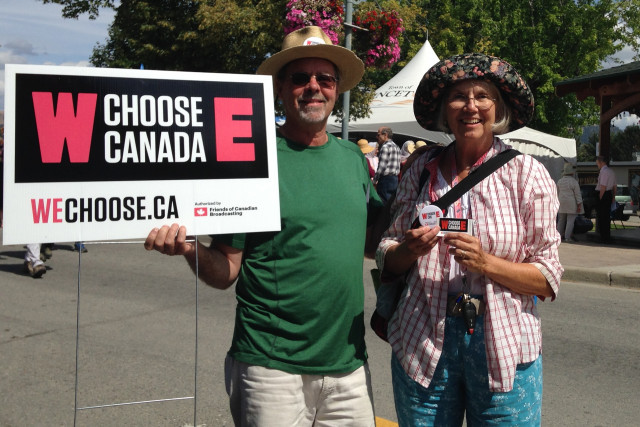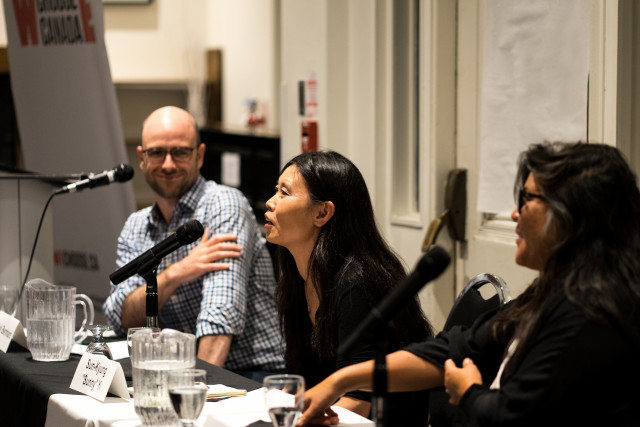2019 - The year the world turned against Facebook
FRIENDS’ executive director Daniel Bernhard looks back at a year of upheaval for big tech and journalism, and vows to make sure the federal government keeps its promises in 2020.
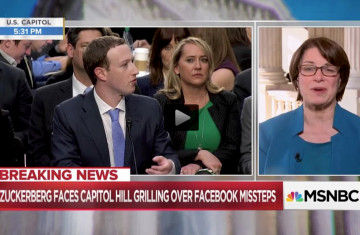
Facebook’s Mark Zuckerberg squirmed as he faced questions from legislators in the U.S. Congress.
Thinking about everything FRIENDS accomplished in 2019 tires me out: I simply cannot believe how much we packed into the past 12 months. And while our election campaign was successful, the news wasn’t all positive. Still, it’s amazing what you can achieve when the stakes are high and you’re willing to sacrifice a bit of sleep!
In fact, 2019 was a bloody year for Canadian journalism and storytelling. The Globe and Mail cut $10 million from its budget. CBC laid off 35 newsroom staff. La Presse announced fresh layoffs. CTV’s restructuring plan also led to job losses. And there were more closures, culminating with Torstar pulling the plug on its StarMetro papers in Vancouver, Edmonton, Calgary, Toronto and Halifax in November.
While it’s no consolation for all that has been lost, there are signs that the federal government is beginning to grasp the seriousness of this crisis. In February, it announced a five-year, $595-million package of tax breaks to support Canadian newspapers. While FRIENDS does not think much of that move, at least it signifies that Ottawa has finally come to understand the vital importance of professional journalism, as well as the proximity and veracity of the threat that Facebook, Google, YouTube and other ad-supported American corporations pose to Canadian democracy. That’s a big shift from 2018, when then-Heritage Minister Mélanie Joly proclaimed that requiring those platforms to pay taxes in order to level the playing field and protect Canadian journalism was tantamount to propping up “failed business models.”
Meanwhile, 2019 was the year the world finally turned against Facebook. The U.S. government slapped the social media monopoly with a US $5-billion fine for repeatedly lying to regulators about the active role it played in the Cambridge Analytica scandal that helped elect Donald Trump. Mark Zuckerberg testified before Congress, where he squirmed, lied and equivocated in the face of incisive questions from well-informed lawmakers.
In response to the senseless murder of 51 Muslim worshippers in Christchurch, New Zealand—or, rather, in response to Facebook’s live broadcast of the crime to a potential global audience of more than two billion people—the governments of Australia and New Zealand enacted harsh penalties for platforms that propagate hate. They join Germany, France, Japan and the U.K. at the forefront of a global movement to subject social platforms to the rule of law. Here in Canada, a new Canada Elections Act required Facebook to provide a minimum level of transparency about who was paying to run election ads on the platform. And the Privacy Commissioner declared that Facebook repeatedly broke Canadian law, though he doesn’t have the power to punish them for it.
In May, Canada played host to a meeting of the International Grand Committee on Big Data, Privacy and Democracy, a body of legislators from 14 countries, including the U.K., Brazil, France, Mexico and Belgium. While Canada is hardly the leader of this pack, Liberal MP Nathaniel Erskine-Smith, Conservative MP Bob Zimmer and New Democrat MP Charlie Angus drew international acclaim for their deep policy knowledge and their uncompromising grilling of Facebook’s hapless Canadian lobbyist, Kevin Chan, who tried and failed to change the subject and escape accountability for his company’s innumerable transgressions against law and decency.
Heritage Minister Pablo Rodriguez had no choice but to declare that a re-elected Liberal government would end the “free ride” enjoyed by Netflix and its ilk.
2019 was also the year that Quebec and Saskatchewan required foreign tech giants like Netflix to collect and remit sales taxes, as any other business must. In doing so, they exposed the absurdity of the federal government’s insistence that it would happily level the playing field if only it were possible to do so. As the election drew closer, then Heritage Minister Pablo Rodriguez had no choice but to declare that a re-elected Liberal government would end the “free ride” enjoyed by Netflix and its ilk. This after the Prime Minister himself rose in the House of Commons in 2018 to proclaim that his government would do no such thing.
Ultimately, 2019 reminded us what it takes to get citizens to a place where they’re no longer willing to tolerate politicians who delay and deflect and dissemble without end—anything to save them from doing their job and governing the country. It takes time, effort, money and a dedicated base of volunteers who can mobilize their communities to press politicians to act. FRIENDS’ We Choose election campaign did just that, targeting 22 battleground ridings in Quebec, Ontario, Alberta and B.C. The campaign succeeded in getting our policy priorities on the national agenda, and with varying degrees of sincerity and intensity, all parties promised to take some action in support of our goals.
In 2020, our job is to convert those promises into policies, and there will be many occasions for us to influence the national debate so that the citizen’s perspective is not lost.
The upcoming budget will give the government the opportunity to make good on its promises to tax international tech giants like Google and Facebook.
In January, the panel reviewing the Broadcasting Act will report its findings. This report could have major implications for CBC. It could also propose sweeping changes that would prevent the CRTC from letting internet broadcasters like Netflix skirt their obligations to finance Canadian stories.
On November 25, the CRTC launched the licence renewal application for CBC/Radio-Canada—the licences expire in August 2020. FRIENDS will be extremely active during the CRTC proceedings, to ensure that the public perspective is always front of mind.
- Why we should support Quebec’s media
- What should a new Broadcasting Act look like?
- A new accountability model for public media
The upcoming 2020 federal budget will give the government the opportunity to make good on its promises to tax international tech giants like Google and Facebook and require the likes of Netflix to collect and remit sales tax.
Later in the spring, the Organisation for Economic Co-operation and Development is expected to unveil international guidelines on how to fairly tax big tech companies, providing a good measure of whether Canada is a leader or a laggard in the global effort to subject these rogue American corporations to democratic policies, taxation and regulation. And that’s just the spring!
After years of falling behind, it seems that Canada is finally starting to catch up to the rest of the world. But minor improvement is not enough. If our media and cultural industries are to survive, we have to get serious about reining in Silicon Valley and supporting Canadian journalism and storytelling. In the months ahead, as the new government unveils its programs and fulfills (or sidesteps) its election promises, you can rest assured that FRIENDS will stand on guard to protect Canadian culture and democracy from international corporate manipulation and domination. We’ll be watching!

